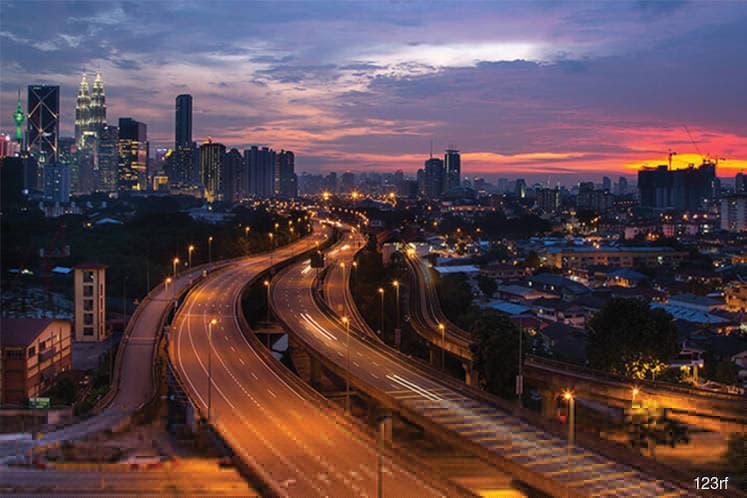
This article first appeared in The Edge Financial Daily on July 25, 2019
KUALA LUMPUR: Malaysia’s economy grew 5.5% in 2018 with a gross domestic product (GDP) value of RM1.4 trillion at current prices, said the Statistics Department.
Bank Negara Malaysia had previously stated that the country's GDP grew at 4.7% in 2018 at constant prices. This compares with the central bank's projected GDP growth rate of 5% at constant prices in 2018.
The Statistics Department, in a statement yesterday, said the GDP was contributed by gross operating surplus (GOS) of RM882.5 billion, while employees’ compensation was RM515.9 billion, up RM29.3 billion from 2017.
Taxes less subsidies on production and imports stood at RM48.5 billion compared with the previous year’s RM64.9 billion, it said.
“Gross operating surplus remained the largest share in income components at 61% and registered a growth of 7.6% in 2018, driven by the services sector, which recorded 9.9% backed by wholesale and retail trade, food and beverage and accommodation,” chief statistician Datuk Seri Dr Mohd Uzir Mahidin was cited as saying by Bernama.
“The manufacturing sector maintained a strong growth although at a more moderate pace of 7.3%, supported mainly by petroleum, chemical, rubber and plastic products,” Mohd Uzir said.
He said contribution of employees’ compensation to GDP expanded to 35.7%, with a growth of 6%, with the momentum largely driven by the services sector which continued to record a favourable 7.5% growth.
Employees’ compensation for manufacturing sector, he said, moderated to 5.3% from a double-digit growth of 11.6% in 2017 due to milder growth in all sub-sectors.
Employees’ compensation for construction, and mining and quarrying sectors grew at 5.1% and 9.6% respectively, he said.
Conversely, employees’ compensation for the agriculture sector fell to 9.2% from a positive growth of 13.5% in 2017.
He said gross domestic income (GDI) compilation reported net taxes or taxes less subsidy on production and imports constituted 3.4% of overall income, and plummeted to 25.3% after recording a marginal growth of 0.3% in the previous year.
The national tax policy in 2018 had been restructured with the implementation of the goods and services tax at zero rate from June 1 to Aug 31, 2018, before being replaced by the sales and services tax effective Sept 1, 2018.
“This scenario has indirectly impacted on the decline in taxes on production and imports.
“Furthermore, subsidies have also increased mainly due to the stabilisation of retail petrol RON95 and diesel prices. The fuel subsidies increased to RM7.5 billion as compared with RM3.1 billion in the previous year,” Mohd Uzir said.
In comparison with selected countries in 2018, Malaysia's GDI recorded the highest percentage share of GOS with 61%, while Singapore was the second highest with 53.1%.
The lowest GOS was registered in European countries with Sweden recording a contribution of 31.7%, he said.
For percentage share in employees’ compensation, the US recorded the highest contribution with 52.8% followed by Canada with 50.5%.
GDI features income components in the form of employees’ compensation, GOS, and taxes less subsidies on production and imports.